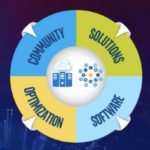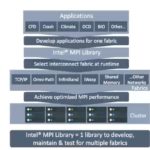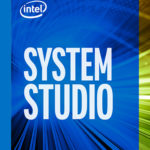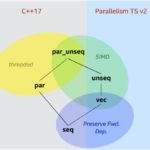In this video, Sanjiv Shah, Vice President of the Core Visual Computing Group, and General Manager of Technical, Enterprise, and Cloud Computing Software Tools at Intel offers his perspective on the evolving nature of the developer’s role, and the latest resources to address persistent issues in application coding.
Artificial Intelligence and Cloud-to-edge Acceleration
In this video, Wei Li, Vice President and General Manager for Machine Learning and Translation at Intel, discusses the increasing importance of AI, the vision for AI’s future benefits to humanity, and Intel’s efforts in providing an advanced platform to facilitate AI deployment from the Cloud to the edge.
Video: The Separation of Concerns in Code Modernization
In this video, Larry Meadows from Intel describes why modern processors require modern coding techniques. With vectorization and threading for code modernization, you can enjoy the full potential of Intel Scalable Processors. “In many ways, code modernization is inevitable. Even EDGE devices nowadays have multiple physical cores. And even a single-core machine will have hyperthreads. And keeping those cores busy and fed with data with Intel programming tools is the best way to speed up your applications.”
Video: The March to Exascale
As the trend toward exascale HPC systems continues, the complexities of optimizing parallel applications running on them increase too. Potential performance limitations can occur at the application level which relies on the MPI. While small-scale HPC systems are more forgiving of tiny MPI latencies, large systems running at scale prove much more sensitive. Small inefficiencies can snowball into significant lag.
Maximum Performance, Minimum Effort: Intel® Performance Libraries
“Over two decades, Intel continued its efforts to refine libraries optimized to coax the greatest performance from Intel® processors. In this video, Noah Clemons, staff technical consulting engineer at Intel talks about the latest specialized libraries and their contributions for highly-optimized applications.”
Debugging for Success and Accelerated Platform Bring-Up
Debugging can prove a substantial challenge, even for experienced engineers. In this video, Soflen Shih, a technical consulting engineer at Intel, discusses the benefits of Intel System Studio and how its built-in functionality can make the debugging process much easier. “Intel System Studio contains libraries, performance analyzers, and compilers as well as profiling and debugging tools. The combination of these elements provides a complete developer solution to assist with platform bring-up, power optimization, thermal tuning, and system performance profiling.”
Expressing Parallelism in C++ with Threading Building Blocks
Parallelism helps applications make the best use of processors on single or multiple devices. However, parallelism implementation itself can prove a challenging task. In this video, Mike Voss, principal engineer with the Core and Visual Computing Group at Intel discusses the benefits of Intel® Threading Building Blocks (Intel® TBB), a C++ library, and how it can simplify the work of adding parallelism without the need to probe into threading details.
Intel® Compilers Overview: Scalable Performance for Intel® Processors
Intel Compilers for C/C++ and Fortran empower developers to derive the greatest performance from applications and hardware. In this video, Igor Vorobtsov discusses nuances of Intel compiler features which enable high-level optimization, auto-parallelization, auto-vectorization, dynamic profile guided optimization, detailed optimization reports, inter-procedural optimization (IPO), and much more.
Video: Speed Your Code with Intel Parallel Studio XE
“Modern processors perform their best with parallel code that’s both vectorized and threaded, which can run more than 100 times faster more than serial code. So how can you accomplish this more easily through parallel programming? Enter Parallel Studio XE, a suite of tools that simplifies and speeds the design, building, tuning, and scaling of applications with the latest code modernization methods.”











